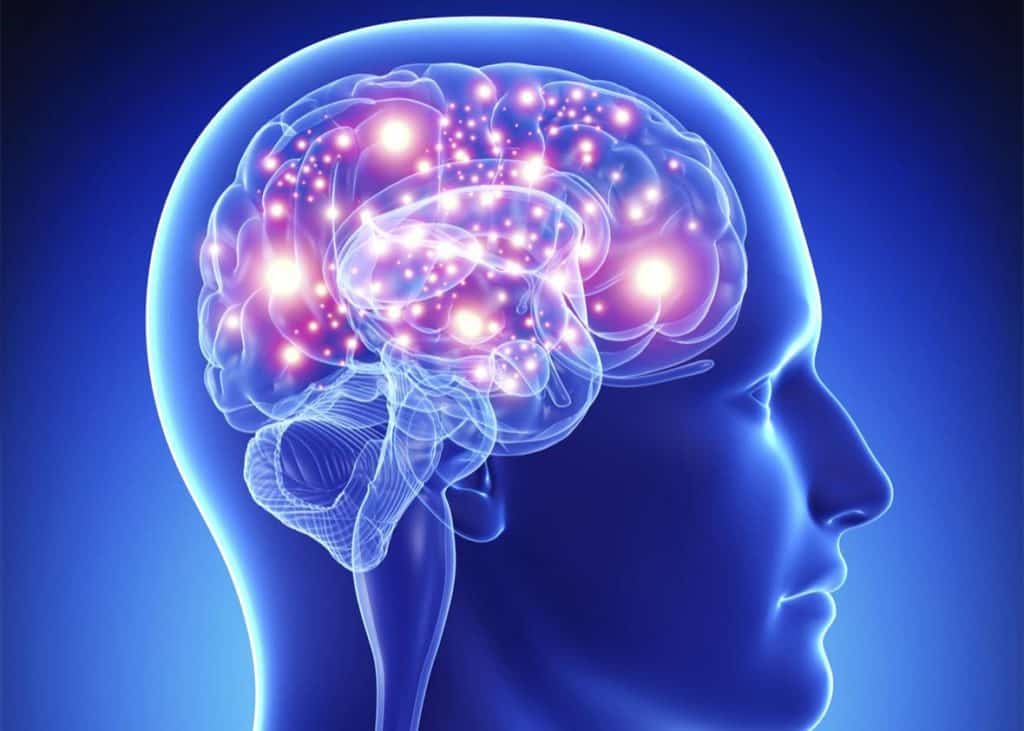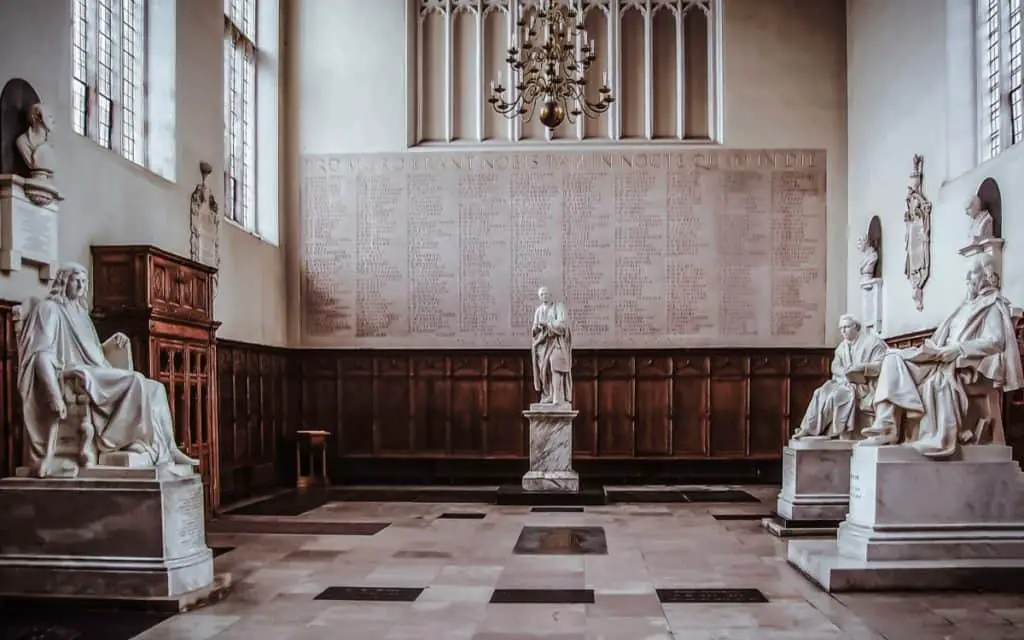Two words that don’t get thrown around much these days are autodidact and Polymath, so you may not know what they mean. But if you do, and you’re looking for books to increase your knowledge for solving problems or for the fun of learning, we’ve compiled a list of the best must-read books that will satisfy your thirst for knowledge.
The 15 must-read books for an Autodidact Polymath come from ancient literature, history, philosophy, health, psychology, religion, and law disciplines. Books such as Brave New World by Aldous Huxley or Gulliver’s Travels by Jonathan Swift are must-read books, among other similar books.
If you love to read, and you probably do, if you’re reading this article, stay tuned for the must-read books for an Autodidact Polymath.
What Is an Autodidact?

The word autodidact is based in ancient Greek, literally meaning “self-taught.” An autodidact takes the initiative to learn things independently without teachers or masters in an institutional setting. Anyone who looks up how-to articles or videos online in their quest for knowledge is an autodidact.
Autodidactism Is an Ancient Practice
Before the modern educational system became normalized, people would learn about their world through observation and reading or from their parents, with a mix of both methods being utilized. Those who worked in the crafts such as blacksmiths, millwrights, or those in the mechanical trade often apprenticed while earning a living. Colleges and universities only taught law, medicine, and theology until the early 20th century.
Teachers of the nineteenth century only needed a high school education, while many students only finished school through the 8th grade. Yet, several educated people came from that time who were highly intelligent and learned, without formal education.
Who Can Become an Autodidact?
The generic answer to this question is that anyone who has a desire to learn and the self-discipline to keep studying is an autodidact. There are several traits that one must have before they can become an autodidact, especially in the absence of teachers or masters.
You must have a reasonably analytical brain to know what to do with all of the information you consume. You need to be able to put that information into practical terms and figure out how to use it in a way that makes sense.
You need to be curious enough to ask further questions and not be satisfied with basic answers or knowledge. You need to ask “why” several times over to further your understanding.
A sense of never being satisfied with your present knowledge allows you to become an autodidact, or rather, self-taught. Reading and consuming information is something that you will never get tired of or get sick of doing.
What Is a Polymath?

A person who is well-versed in many disciplines and skilled in several niches is generally known as a polymath. The word comes from the Greek word that means “having learned much.” It describes someone who has acquired much knowledge about many topics. When combined with the name autodidact, it becomes a self-taught person well-versed in many subjects.
Famous People Who Are/Were Polymaths
Conventional wisdom says that if you are a “jack of all trades,” you are a “master of none.” But that doesn’t include Bill Gates, Barack Obama, and Warren Buffet, as they are all polymaths, and dedicate at least an hour per day to reading and learning.
Past famous people who were polymaths include Leonardo Da Vinci and Gandhi. Throughout the renaissance, many people were expected to be musically inclined, write poetry, and speak several languages as well. If they were well-versed in the sciences, all the better.
What Makes a Book Suitable for Autodidact Polymaths?
When looking for books suitable for autodidact polymaths to consume, the bare minimum requirement is that they must teach you something. You’re not reading for fun when you set out to learn something unless you find learning fun, which many polymaths do.
Books Must Bring You Out of Your Comfort Zone
You read to learn, grow, and, hopefully, become a better “you” than you were before. That sometimes means that you need to leave your comfort zone and be uncomfortable for a while. Whether it’s a new skill you’re learning or a new idea that you’ve never encountered and don’t like, you must become uncomfortable to grow.
A book that discusses government control, like 1984 by George Orwell, can take you out of your comfort zone when you’re in favor of government control. After reading that book, you may begin to think about privacy rights in a completely different way.
Again, if you were to read any psychology book and feel “called out,” this contributes to your growth. But it will be uncomfortable at first.
Books Must Teach You Something You Didn’t Know
It can be fun to read an entertaining story, and books that entertain are perfectly acceptable if that’s what you prefer. However, for a book to be a must-read for autodidact polymaths, you need to learn something. If you’re into sciences, any book that teaches you new concepts would be suitable for a reading list.
Brave New World, by Aldous Huxley
Amid the utopian novels that were popular at the beginning of the 20th century came a sort of “negative utopia” novel from Aldous Huxley, “Brave New World.” While other authors of the time were focused more on how great the future would be as a way to escape the hard times of the 1930s, Huxley focused more on full government control and fake families and people.
Background
It was originally written as a satire in response to H.G. Wells’ books that paint a positive and upbeat utopian society. Huxley looked at the Great Depression of the 30s and figured that life couldn’t possibly get better when there was no stability, so he wrote about a world where the government guaranteed security. Only, not everyone in the book loved the “stability.”
Synopsis
Set 600 years in the future, “Brave New World” starts by explaining how families start in bottles and when more people are needed, they are “activated” through the hatcheries. Once the children are “hatched,” they go through an indoctrination program to learn how to get along in a “one size fits all” society.
To keep control over people, they are widely given a drug called “soma,” which keeps them subdued and controllable.
When the main characters visit a primitive community, they find a woman who used to be part of the main society but was abandoned many years prior. She had a son the old-fashioned way grown up by the time the main characters visited the community. Once they were rescued, mother and son had a difficult time fitting in.
The “Resident World Controller” refused to send the son back to a primitive culture, which propelled him in a spiral into depression.
Why Should You Read This Book?
“Brave New World” is a cautionary tale of allowing too much government control in a world where the power was already beginning to increase. As an autodidact polymath, learning about how people viewed the future, or government control can alter your perceptions about current events. It gives you a new perspective and can inspire growth and progress for all humans.
Gulliver’s Travels, by Jonathan Swift
Another satire, “Gulliver’s Travels” by Jonathan Swift, set out to openly mock the 1700s writers that outlined exploration and “documentary” style works of the day. He wrote it to irritate his readers rather than give readers an escape, but that didn’t happen, as it was loved almost as soon as it was published.
Background
Because the book was anti-Whig in nature, it was anonymously published in London, after many attempts were made to keep it out of Jonathan’s handwriting. He had other people copy his words so that the book would not be traced to him and that he would remain in good favor with the authorities. Many works were derived from this publication, but Jonathan disavowed any of them as he wanted no part in any more mockeries of the authorities.
As was typical of the period, traveler’s tales of faraway lands and strange people were in vogue, as well as stories of the human condition. Instead of creating true-to-life tales, he fabricated entire nations and people that mocked the status quo.
Synopsis
Four parts outline Gulliver’s journey throughout the world as he searches for experiences and oddities that other lands could provide to him.
The first part outlines his journey to Lilliput, a nation of very small people. Gulliver is a giant compared to the inhabitants, which makes him a suspect for many ills. They want him to reduce the size of their enemy’s island to Lilliput, but he refuses. They want to kill him, but at the last minute, he escapes with his “friend in court,” as it were.
Later, he sets sail again and ends up in a giants’ land where the grass is taller than he is. A farmer finds him, takes him home, and is cared for by the farmer’s daughter. While speaking of England to the king, the king gets angry and wants to kill Gulliver. But he escapes in a traveling box on the open sea and is rescued by sailors bound for England.
The rest of the book sees him fighting pirates and witnessing the devastation that practicing science without practical considerations brings.
Gulliver’s Themes
Jonathan Swift mocked the attitudes and practices of the times by describing things in detail that people were hesitant to talk about in polite society. For example, he explained in detail a woman’s breast as something hidden, yet the primitive societies had women who frequently bared their breasts. Gulliver described in detail the naked breasts of the primitive women, including the shape, size, and color.
Jonathan Swift also mocked the petty religions of the day through the customs of the primitive lands that Gulliver visits. On Lilliput, if a person were to crack an egg on the wrong side, they instigated a deep political rift.
Gulliver becomes more and more hardened to the behavior and violence of people as he travels. While he was shocked at the absurdities and violence of those in Lilliput, by the time he reached his final destination in part four, he was neither shocked nor dismayed at the behavior.
Why Should You Read This Book?
Common perceptions about the world around you often go unchecked, even so far as to accept atrocities done in the name of tradition and propriety. A true autodidact polymath has an open mind and can understand that growth only comes from reading others’ ideas and opinions. Gulliver’s travels outline the historical ideas of the time and how they were mocked in favor of progress.
Read this book if you want to learn how old ideas were challenged through satire, and how it applies to modern times.
Common Sense, by Thomas Paine
When Thomas Paine published the pamphlet, “Common Sense,” tensions between America and England were rising drastically, and Americans were toying with the idea of independence from England. At first, Thomas tried writing several letters to the public, but because it was getting too long for ordinary letters to publish in newspapers, he settled on a pamphlet format, as was common at the time.
Background
Many Americans were terrified of independence, while other Americans fought for it. At the time of writing, it was considered treason to speak out against England. When Thomas Paine started writing, it was to address the hesitation and obstinance of the people fighting for an egalitarian government.
Synopsis
Organized into four separate sections, Common Sense delves into the growing tensions between America and England, how people are too dependent on England for their survival, and that God did not approve monarchies. It then says that governments are necessarily evil as they are needed to control the chaos of living in a society with other people.
Thomas outlined what a constitution would look like and how democracy would work where all people would be represented in congress. Last, he shared his optimistic views on how America’s naval fleet would rival or be better than the English Naval fleet.
Why Should You Read This Book?
As with the other books mentioned, learning the origins of democracy and how government works can help you identify when democracy ends and tyranny begins. If you are an autodidact polymath, you will want to know everything you can about the government. It will help you fight the system when it needs to be fought, and you will know when your rights are being trampled on.
Being well-versed in all topics includes the government and the history of it.
Critical Path, by R. Buckminster Fuller
All human growth, knowledge, and history were briefly summarized in the “Critical Path,” by R. Buckminster Fuller. After realizing that the world was all one world and one ocean, he set about creating a system where the entire world would be on an energy grid. His idea that no one should ever fight for resources came from the fact that metals and other resources are getting cheaper.
Synopsis
The book is separated into three parts, of which each part outlined different periods in human history and development. The first section covers the history of humanity and the global economy in that food and other supplies have always been scarce. People fought each other for resources, which, of course, is the reason for wars.
Efficiency in production of resources led to fewer wars, but it created an economy that helped some get to the top, while others became worse off. Greed and extortion from the few to the many created an economy that shaped human history.
The second section outlines his realizations about his world and how he and his family were always cared for in the “nick of time” because of how the world worked. At this point, he then describes a geo scope that allows people to visualize the spatial and temporal patterns of human activity and solve problems like weather-related issues and wars.
The last section outlines how all the world’s problems can be solved using technology and innovation. When the world can create and distribute the world’s wealth equally, humans are free to pursue other interests without the need to survive.
Why Should You Read This Book?
Becoming aware of ideas that others have about making the world work for everyone is part of being an autodidact polymath. Reading this book will enlighten you to possibilities you never thought of and might spark ideas within you to make the world a better place.
The Story of Philosophy, by Will Durant
Since 1926, “The Story of Philosophy” by Will Durant has been published and re-published into books and pamphlets. It outlines the basic thoughts of the world’s greatest philosophers, such as Socrates, Plato, and Neitzche.
Synopsis
As it is a summary of the philosophical thought from the ancient world thinkers to modern thinkers, the book devotes one chapter to each philosopher. It outlines how each idea presented is connected with every other idea and how philosophers might have influenced another. While it doesn’t include Chinese philosophers, the author addressed that in subsequent volumes to create cohesion with the rest of the book.
Why Should You Read This Book?
As with any well-rounded education program, the philosophies are worth your time to study. Philosophy is an attempt at understanding life while putting meaning into it. Read this book to understand the human condition and those who led the thought revolution.
Obedience to Authority, by Stanley Milgram
“Obedience to Authority,” by Stanley Milgram, outlines the findings of the authoritarian experiments carried out in the 1960s and 70s. Obedience experiments were very popular in the 1960s and 1970s. As a result, psychologists learned a good deal about how human beings react to those in authority. They also tested the responses of people who were put in charge to see if it would change their basic natures.
Background
Along with his colleagues at Yale University, Stanley Milgram conducted a series of experiments concerning the nature of authority. He instructed participants in the authority position to carry out shock treatments to other participants when they didn’t do what they were told. Then he recorded the results from the beginning of the sessions to the end of the sessions.
He found that those in authority believed that they were doing a service to those expected to obey. He found that people are destructive at their core when given a choice and that it might be easy to control people if people are given no other option but to obey.
Synopsis
The book explains how the experiments were conducted, how the participants reacted to being in that situation, and how the relationship between the victim and the abuser played out. It looks at whether aggressive tendencies played out in group scenarios more or less than with individual situations.
His methods were criticized because they weren’t very ethical, as the subjects were not properly briefed as to the purpose of the trials.
Why Should You Read This Book?
People are seldom aware of when they act out of their own beliefs or value systems or simply obey a higher authority. The book shows you what can happen with blind obedience. As an autodidact polymath, part of self-education is to become fully aware of how blind obedience can create harm to others.
When you read this book, you might begin questioning those in authority and why you should blindly follow them.
The Secrets of the Federal Reserve, by Eustace Mullins
“The Secrets of the Federal Reserve,” by Eustace Mullins, is an incendiary publication that was published out of letters between the author and a poet by the name of Ezra Pound in the 1940s. Ezra was incarcerated in the St. Elizabeth Hospital on treason charges against the US in his support for Adolf Hitler during WWII. These letters against the Federal Reserve became a part of Mullins’ book.
Background
Mullins wrote to Pound that the “Jews are betraying us,” which was the precursor to explaining how the Federal Reserve was set up to benefit only the rich. Ezra asked Eustace if he heard of the Federal Reserve while showing him a $10 bill that had those words on it. Eustace Mullins investigated the Federal Reserve and put his findings in a book that he finished in 1950. No one wanted to publish it for fear of backlash from “the powers that be,” so in 1952, he published it on his own with some help from two of his disciples.
Synopsis
The book argues that only a few of the richest families control the Federal Reserve and that they were to blame for the economic collapse of 1929. While the Federal Reserve Act calls for creating a central bank of issue, the richest families profited from the conflicts of the Great Depression and the World Wars.
Why Should You Read This Book?
Learning the history of how the economy formed can help you learn how to avoid repeating others’ mistakes. And learning how to avoid mistakes is the best path towards progress personally and as a nation.
The Manchurian Candidate, by Richard Condon
A novel about a political assassin, “The Manchurian Candidate” by Richard Condon, was written in 1959 and adapted to film in 1962, and again in 2004. Richard was once accused of plagiarism, but it remains unfounded, as the book did not match exactly to any works of the time. While some works were similar, it was not enough to pursue legally.
Synopsis
During the Korean War, an entire platoon was brainwashed by the Soviet Union after they were captured. After the war was over, Major Marco began work as an intelligence officer. But it wasn’t long before he started having nightmares about sweet little old ladies telling him to kill his comrades.
Disturbed by the nightmares, Marco looked up his old platoon members to compare stories, which led to the assassination of nominated Vice President.
Why Should You Read This Book?
While the book may be a work of fiction, it’s not out of the question that this type of manipulation is possible in real life. As you read this book, you may find yourself becoming more aware of how things can happen, and perhaps avoid it yourself.
Conclusion
Being an autodidact polymath means that you have a world of books and other materials at your disposal to educate yourself. You can read works from the Ancient Greek civilization or modern works that express the human condition to learn how others viewed the human race. Or you can read several works online for free from colleges and universities as a way to get a free education.
If you love to learn and consume a lot of information, you might try mapping out an educational path based on the free online courses as an attempt to earn an honorary degree. As an autodidact polymath, this might be the best way to educate yourself without an educational institution.
Sources
- Global Energy Network Institute: What Is the Planet’s Critical Path?
- Medium: 5-Hour Rule: If You’re Not Spending 5 Hours per Week Learning, You’re Being Irresponsible
- Observer: People With ‘Too Many Interests’ More Likely to Be Successful, According to Research
- Spreeder: Do You Know if You’re an Autodidact?
- Wikipedia: The Manchurian Candidate
- Wikipedia: Eustace Mullins
- Wikipedia: Obedience to Authority: An Experimental View
- Wikipedia: The Story of Philosophy
- Wikipedia: Common Sense
- Wikipedia: Critical Path (book)
- Wikipedia: Brave New World
- Wikipedia: Gulliver’s Travels






